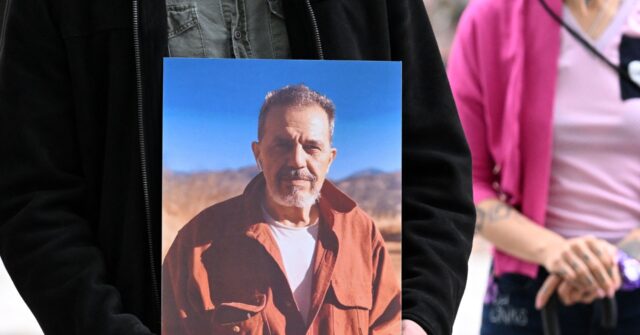The execution of Jamshid Sharmahd, a German-Iranian national and a long-time resident of California, by the Iranian judiciary marks a significant and controversial event in the ongoing discussions surrounding human rights and the Iranian government’s treatment of dissidents. His death was confirmed on Monday after a lengthy period of captivity that began when he was abducted during a layover in Dubai in 2020. Iranian authorities accused Sharmahd of terrorism, particularly linking him to the bombing of a mosque in 2008—a charge he vehemently denied and for which credible evidence was reportedly lacking. This lack of substantiation raised serious concerns about the integrity of Iran’s judicial proceedings and highlighted the broader issues of political repression in the country.
Following his abduction, Sharmahd faced a trial that culminated in a death sentence pronounced in February 2023. Despite international outcry and condemnation, the Iranian judiciary proceeded with the execution, reinforcing the notion that political dissent is met with severe punishment in Iran. The Iranian government’s justification, as stated in their announcement, was rooted in a narrative that framed Sharmahd as a tool of Western intelligence agencies, particularly accusing him of being influenced by the United States and Israel, whom they described in derogatory terms. This framing reflects a broader strategy employed by the Iranian regime to portray those who oppose it as foreign agents or terrorists, undermining their legitimacy and silencing dissent.
Amnesty International has labeled Sharmahd as a political prisoner, shedding light on his work with a dissident website known as Tondar, which he managed and used to criticize the Iranian regime. The website hosted various broadcasts that included anonymous statements from groups claiming responsibility for acts of violence within Iran. Despite the accusations leveled against him, Sharmahd consistently denied involvement in any acts of terrorism, asserting that his work was peaceful and aimed at promoting freedom and democracy in Iran. The disparity between the charges and the lack of effective evidence showcased the potential misuse of the criminal justice system for political ends in Iran.
Sharmahd’s daughter, Gazelle, has publicly defended her father, expressing her family’s deep ties to the United States. She emphasized that he was a law-abiding resident with significant connections to the U.S., even suggesting that he would have obtained citizenship were it not for the circumstances surrounding his detention. This important context frames Sharmahd not simply as a foreign national but as someone with an integral link to American society and values. Her plea for recognition under the Robert Levinson Hostage Recovery and Hostage-Taking Accountability Act underscores the broader implications of her father’s case for discussions about U.S. foreign policy and its commitment to protecting its citizens abroad.
The Levinson Act, enacted in late 2020, serves as a legislative framework for the U.S. government to address cases of wrongful detentions and hostage-taking. It categorizes lawful permanent resident aliens with deep connections to the United States as “U.S. nationals.” This classification is pivotal in Khojamirzai’s narrative that challenges the ordinary portrayal of Jamshid Sharmahd as merely a foreign national allying with pernicious forces. Instead, it elevates his case to one of American significance, pressing the U.S. administration to reevaluate its stance toward Iran and the overall treatment of its citizens abroad, especially in light of the heightened risks they may face due to geopolitical tensions.
The execution of Sharmahd raises alarm bells not only about Iran’s judicial practices but also prompts wider discussions about the implications for international human rights. As global attention shifts to the plight of political prisoners and the responsibilities of governments towards their citizens, Sharmahd’s case exemplifies the complex interplay of justice, political persecution, and the international community’s role in advocating for the rights of individuals. In a world increasingly entangled in issues of sovereignty, national security, and human rights, the stakes for individuals like Sharmahd remain perilously high. The need for accountability, transparency, and respect for fundamental rights is more crucial than ever, spotlighting the moral imperative facing global leaders and institutions in addressing the injustices perpetrated against political dissidents around the world.

